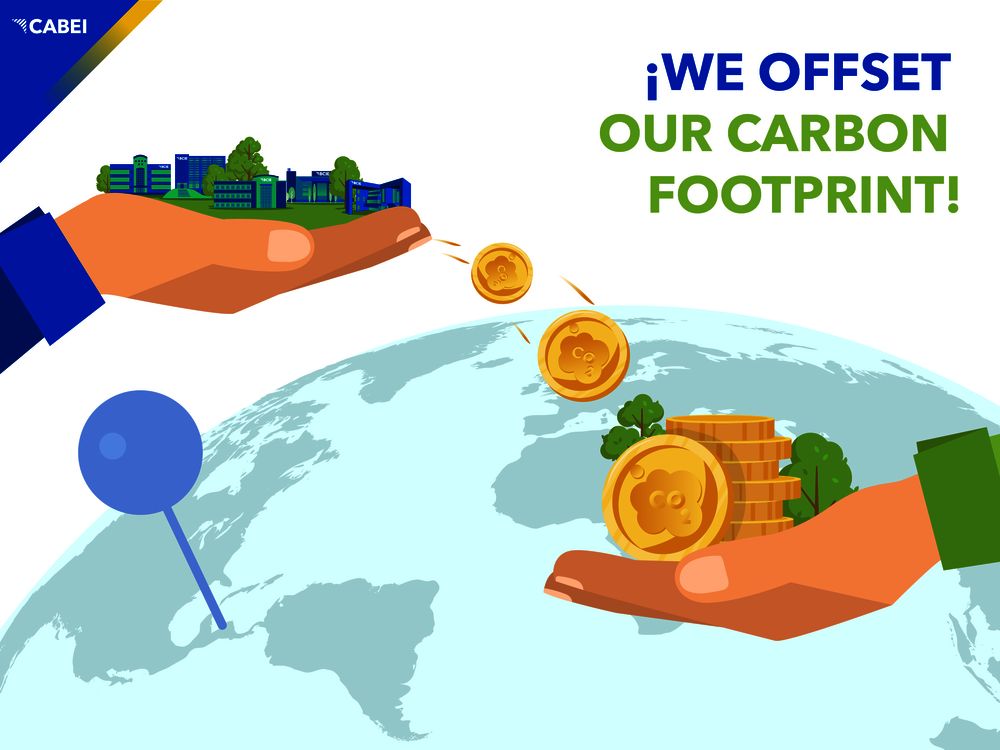CABEI offsets its carbon footprint in 2023

In line with its commitment against climate change, the Bank implements international best practices to reduce the environmental impact generated by the operation of its facilities.
Tegucigalpa, December 15th, 2023 - For yet another year, the Central American Bank for Economic Integration demonstrates its commitment to the environment and the sustainability of its internal operation processes.
As part of its Environmental Management System (EMS), CABEI reduces the impact of its carbon footprint by offsetting the greenhouse gas emissions produced by its daily operations through the acquisition of carbon credits.
These are financial instruments that represent the reduction or elimination of greenhouse gases from the atmosphere by environmental initiatives and projects, as part of the Clean Development Mechanisms (CDM) defined by the United Nations Framework Convention on Climate Change (UNFCC).
By 2023, carbon credits were purchased for sustainable projects in the Central American region, which allow the generation of clean energy and help counteract climate change, offsetting a total of 1,829 tons of CO2 from the Bank's administrative operations during 2022, resulting in the compensation of:
- 100% of the carbon footprint generated by travel made by the Bank's headquarters staff in Tegucigalpa, Honduras. This represents 1,341 tons.
- 100% of the total carbon footprint of the Country Representative Offices in Guatemala (132 tons), El Salvador (135 tons) and Nicaragua (181 tons), for a total of 448 tons.
- 40 tons of CO2 emissions at the Representative Office in Costa Rica as an initiative to comply with the Carbon Neutrality certification at that facility.
From 2019 to date CABEI has offset through carbon credits 3,823 tons of CO2, which has allowed it to proactively manage its carbon footprint and demonstrate its responsibility to the environment.


![[Translate to English:] [Translate to English:]](/fileadmin/_processed_/d/1/csm_shutterstock_2051722811_26c0a9c00f.jpg)




